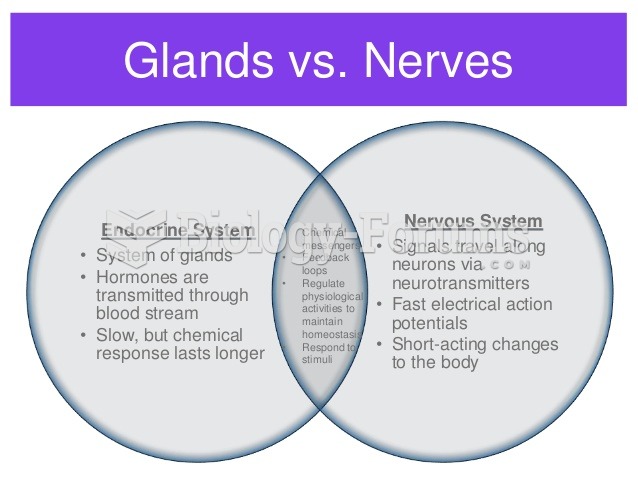|
|
|
Egg cells are about the size of a grain of sand. They are formed inside of a female's ovaries before she is even born.
Signs of depression include feeling sad most of the time for 2 weeks or longer; loss of interest in things normally enjoyed; lack of energy; sleep and appetite disturbances; weight changes; feelings of hopelessness, helplessness, or worthlessness; an inability to make decisions; and thoughts of death and suicide.
There are more bacteria in your mouth than there are people in the world.
The average person is easily confused by the terms pharmaceutics and pharmacology, thinking they are one and the same. Whereas pharmaceutics is the science of preparing and dispensing drugs (otherwise known as the science of pharmacy), pharmacology is the study of medications.
More than one-third of adult Americans are obese. Diseases that kill the largest number of people annually, such as heart disease, cancer, diabetes, stroke, and hypertension, can be attributed to diet.
 Receptors in the autonomic nervous system: (a) Sympathetic pathway: Ach is released at the ganglia ...
Receptors in the autonomic nervous system: (a) Sympathetic pathway: Ach is released at the ganglia ...
 A rectangular-shaped fuel rail is used to help dampen fuel system pulsations and noise caused by ...
A rectangular-shaped fuel rail is used to help dampen fuel system pulsations and noise caused by ...





